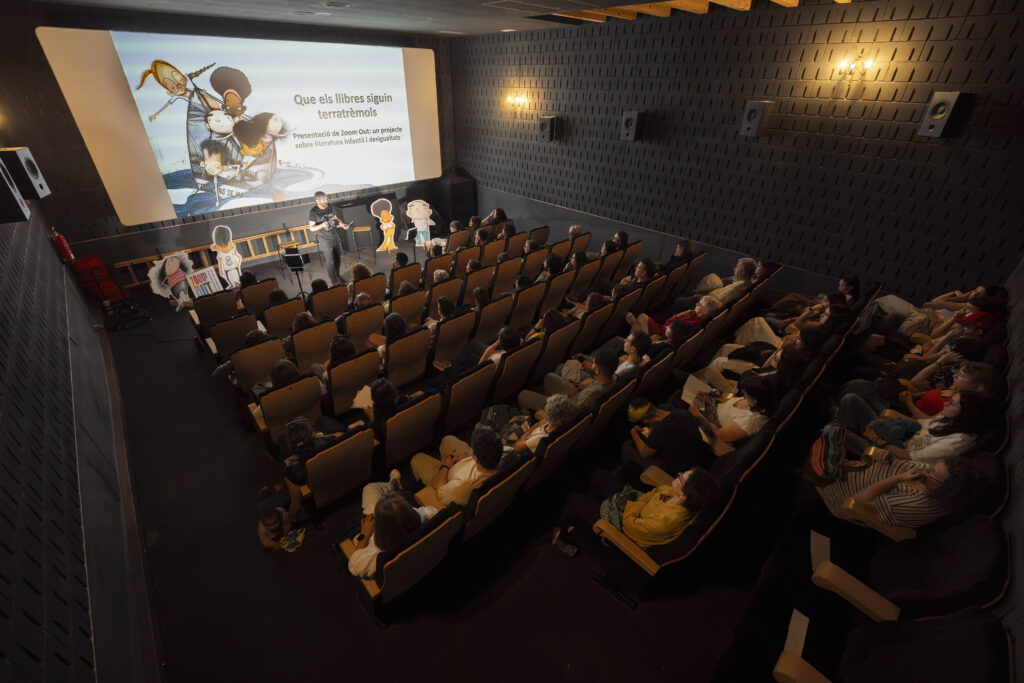
On May 26, the three animations from the Zoom Out project were presented at Zumzeig Cinecooperativa in Barcelona.
These videos are designed as educational resources to encourage critical thinking in the classroom. Created from an intersectional perspective, they aim to show how various axes of inequality—such as gender, race, social class, and functional diversity—interact and shape our lived experiences.
The animations, which are between three and four minutes long, are available in six languages—Catalan, Spanish, English, Italian, Polish, and Croatian—and are accompanied by a set of classroom activities that support the exploration of diversity, difference, and equity.
The project features illustrations by Cristina Zafra, animation by Sergi Benach, production by Lorena González, and sound and music editing by Cristian Arenós. Voiceover work in Catalan and Spanish was performed by Pol Felip.
Event Presentation Highlights Literature, Lived Experiences, and Classroom Impact
With the slogan Let Books Be Earthquakes, the event showcased how children’s literature can become a tool for exploring and dialoguing about inequality. It served not only as the premiere of the animations but also as a celebration of the broader pedagogical and social aims of the project.
During the event, researchers shared the process of developing and implementing classroom workshops with both students and teachers. Particular emphasis was placed on activities such as the identity web, which allowed students to reflect on their multiple identities in a creative and empowering way. These activities were well-received by both pupils and educators, as they made abstract concepts around diversity and inequality more tangible and engaging.
In addition to the three animated shorts, the audience was also presented with a clip video compilation of testimonies from young people, in which they share personal stories of encountering inequality and reflect on how literature has helped them navigate and make sense of these experiences. The video underscored the emotional and transformative potential of books, particularly when young readers are encouraged to relate literary narratives to their own lives.
Round Table Discussion on Literary Mediation and Inequality
The second part of the event featured a round table discussion with professionals from education and literary mediation. Participants included Marc Alabart (Tàndem Literature for Children and Youth), Mar González (Maneno, educational association on literary mediation and interculturality), Jèssica Balcells (Joan Miró School, Barcelona), Mireia Escobar (La Sínia School, Vic), Maria Alonso (Artijoc), and researchers Gerard Coll-Planas, Marina Garcia-Castillo, and Lorena González-Ruiz, all from the Zoom Out team.
The conversation focused on how literature can be used not just to transmit values but to provoke dialogue and foster awareness of inequalities. Participants shared concrete examples from their respective fields and reflected on the role of educators, mediators, and families in guiding children toward a more critical and inclusive understanding of the world through books.
Funded by the Erasmus+ programme, Zoom Out is coordinated by the Gender Studies Research Group: Translation, Literature, History and Communication (GETLIHC) at UVic-UCC.
